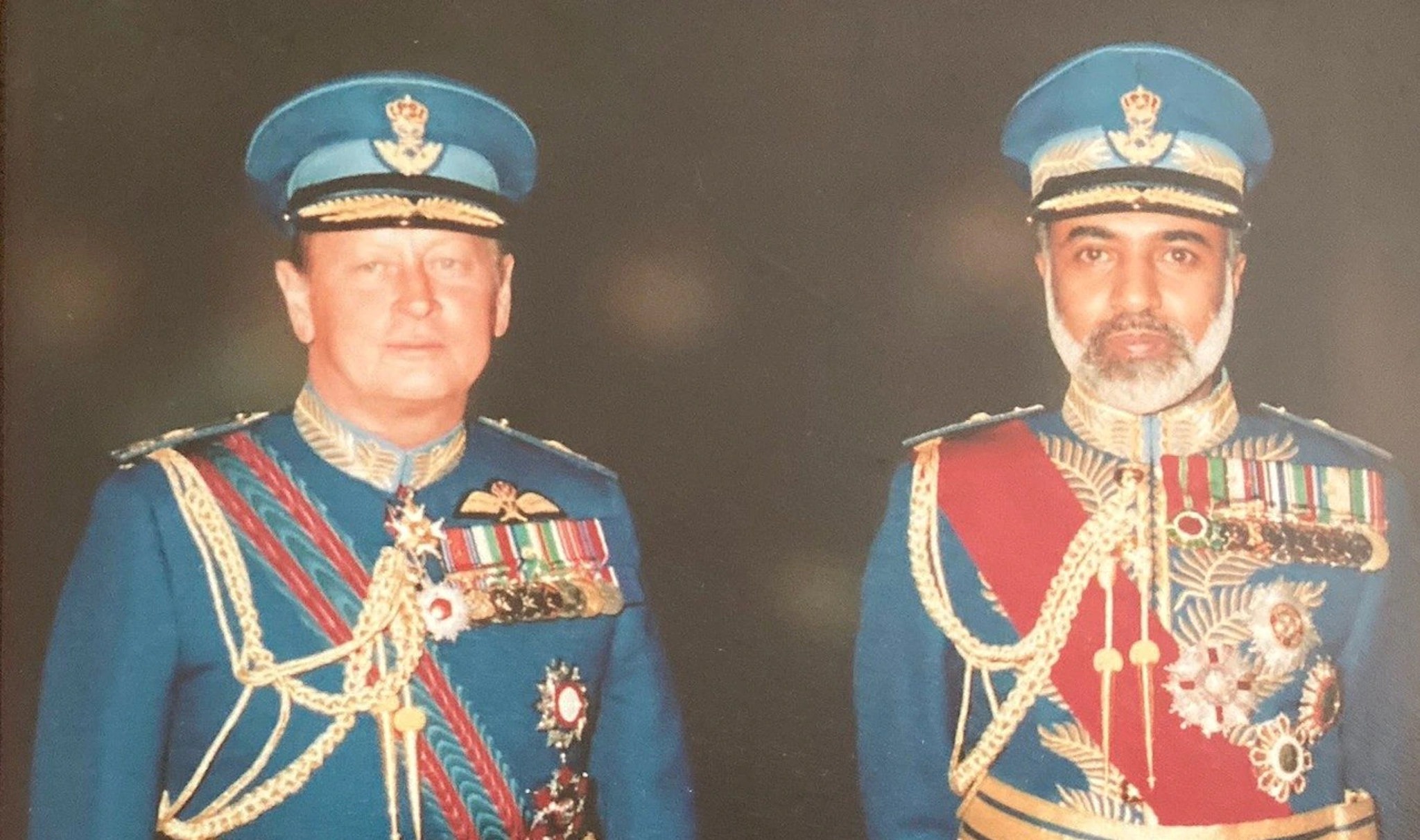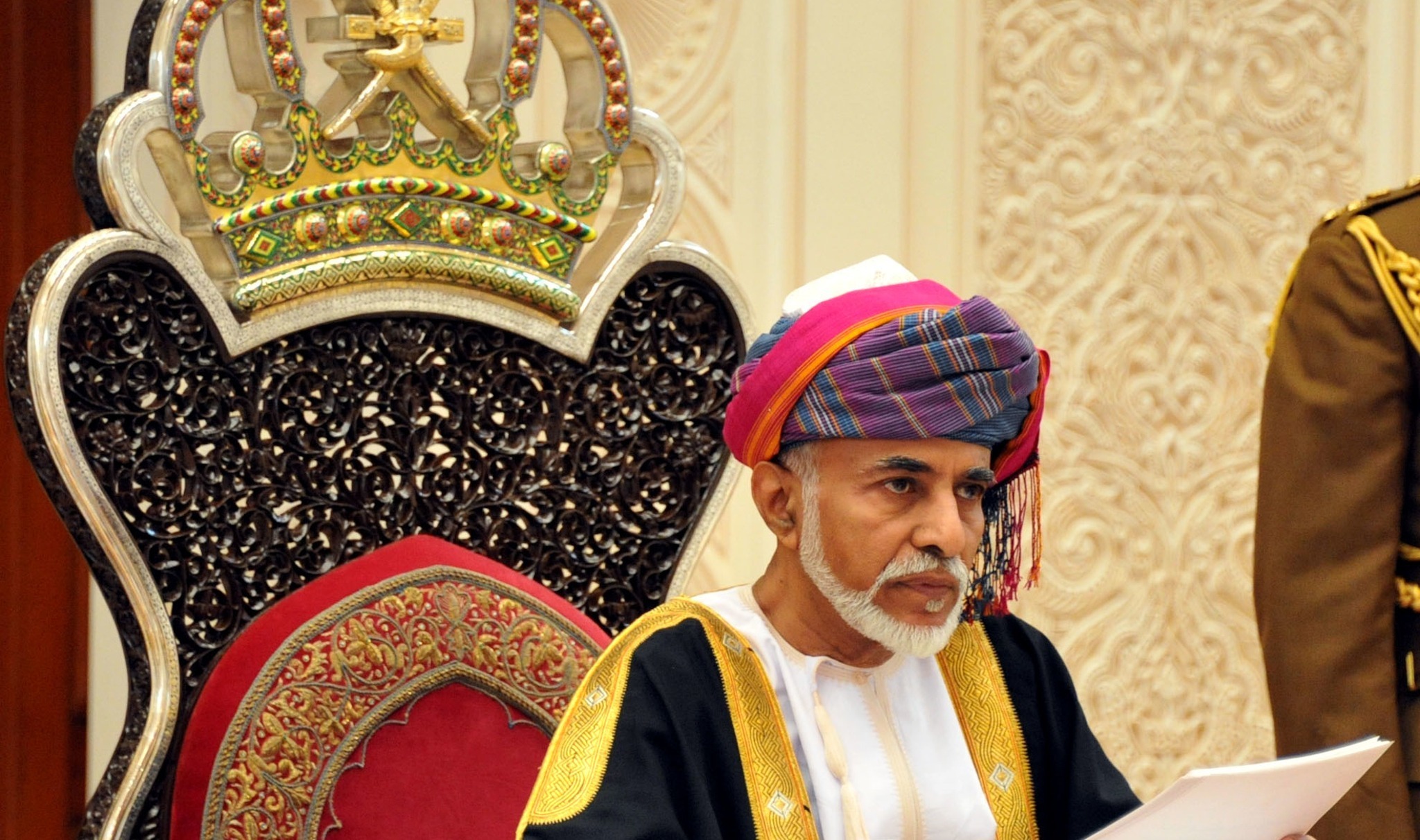One of Britain’s most influential military officers in the Middle East has died. Sir Erik Bennett, who passed away last month aged in his nineties, was godfather to the King of Jordan.
But his real influence lay in Oman, where he spent three decades secretly advising its Sultan, Qaboos bin Said Al Said. He set up the Sultan’s Privy Council, a cabal of British politicians, generals and spy chiefs. It held annual late night meetings at a palace in Muscat.
Bennett was buried in County Laois, Ireland. Former UK foreign minister Sir Alan Duncan spoke at the funeral. Members of the Omani Embassy in London and a UK military attache attended.
Erik Peter Bennett was born in Ireland in the 1920s to an Anglo-Irish protestant family. He joined Britain’s Royal Air Force (RAF) in the 1940s and served as a pilot in Egypt and Iraq.
In 1958, Bennett went on loan to Jordan’s newly formed air force. There, he became an air adviser and close confidant to King Hussein of Jordan. The King gave Bennett a yellow Ferrari and a rare Breitling watch. He also made him godfather to his son Abdullah, the country’s current ruler.
In 1974, Bennett moved to Oman at the recommendation of Conservative foreign minister Julian Amery. The country’s Sultan, Qaboos, had been installed by a British coup several years earlier. Effectively still a UK colony, Qaboos relied on western pilots to suppress a Marxist revolution in the Dhufar region of southern Oman.
Bennett took charge of the Sultan’s fledgling air force, which used Strikemaster planes to fire rockets at the rebels. He promptly organised an upgrade, transfering 16 Hunter jets from Jordan that could drop bombs at lower altitude.
The uprising was largely defeated by 1976, although isolated skirmishes continued into the 1980s. Bennett received an award from the Queen in 1984 and was knighted in 1990. He retired from the RAF in 1991 as an Air Vice-Marshal, having remained on loan to Oman until the end of his military career where he ensured Qaboos purchased UK-made jets.
Dictatorship
Despite the end of the Cold War and total defeat of Marxist rebels in Dhufar, the 1990s saw no steps towards democracy in Oman. Political parties remained banned and carefully vetted independent candidates could only run for a powerless advisory council.
Amid these sham reforms, there was a heavy crackdown on supposed Muslim Brotherhood activists. There are also rumours that soldiers involved in a coup plot were summarily executed. What is certain is that some Omani officers were angry at the ongoing presence of Britons in senior positions.
The most prominent was the so-called ‘White Sultan’: Tim Landon. A former British army intelligence officer, he had been Qaboos’ right-hand man since the coup. In 1992, Qaboos effectively made Bennett into a second White Sultan, appointing him as his principal adviser amid total secrecy.
Qaboos and Bennett were both unmarried and grew even closer after they survived a car crash while travelling together in 1995. A large truck smashed into the Sultan’s vehicle, in what some suspect was an assasination attempt. Bennett was hospitalised and his presence in the car was not publicly acknowledged.
The following year, Qaboos’ introduced the Basic Law, effectively Oman’s first written constitution, which made it an imprisonable offence to criticise the Sultan. John Major described the new law as “clearly a most imaginative and constructive step forward.”
By 1997, Bennett was making “all the arrangements for official visits to the UK by Omani ministers”, a function normally undertaken by British diplomats.



